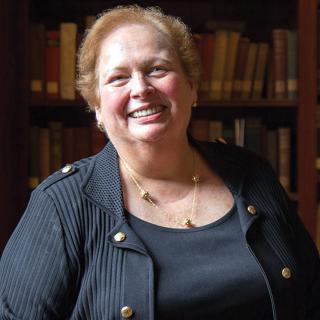
Education: Breaking open the gates
Former U.S. Ambassador Mari Carmen Aponte tackles how the 2020 election could shape the future of education in the U.S.
If I had to point out the one factor making a difference throughout the course of my life, it would be education. Had I not been able to graduate high school, I could not have attended college.
Without college, I would not have been able to attend and graduate from law school.
Without a law degree, heaven knows where the journey of my career and my life would have taken me.
One thing I know for sure: without my education, I would not have been blessed with the opportunities or the chances to succeed in life.
Historically, education in the U.S. is supposed to be the vehicle for social mobility — to help families achieve and attain more with each generation.
Yet for me, the structures in place did not make it easy for me to succeed academically. Fifty years ago, the educational system in Philadelphia took speaking Spanish as a sign you were developmentally challenged, and, as a result, excluded some from opportunity.
Although the world may feel like a very different place from my years in school, not all that much has changed from the 70s.
Even today, the one thing we all want is the opportunity to demonstrate what we can do. We all want a chance to do better; for ourselves and our families.
But, how bad is education for Latinos currently?
Unfortunately, according to The Pell Institute for the Study of Opportunity in Higher Education an estimated 11% of dependent family members in the lowest family income quartile had attained a bachelor’s degree by age 24, compared with 58% of those in the highest quartile.
This means that our Black, brown, and Latino students are being stranded outside the gates of opportunity, often also carrying college debt into adulthood for simply attempting a college education.
Unfortunately for our Latino families, the achievement gap starts early and all too often our children are never able to catch up.
According to the National Education Association, today one in five students entering kindergarten is Latino, which means they are still woefully underrepresented in early childhood programs across the board. Access to high quality early learning programs is all too scarce or unavailable in Latino communities.
According to a 2019 report from the Education Trust, only 1% of Latino children and 4% of Black children are enrolled in high-quality state preschool programs.
This has devastating long term effects.
According to Nobel Prize winning economist James Heckman, early education has a seven-to-one return on investment and powerful long term effects which include better health and life outcomes.
Getting our students off to the right start is critical, and historic investments in early childhood education are essential so that Latino children have more access to a strong educational foundation.
RELATED CONTENT
It’s also important that our schools serve as anchors to sustain and lift up our most vulnerable students.
With the widening wage and income gap, more students and their families are finding themselves in fragile economic situations at home. This has become more apparent and more exasperating during this difficult COVID-19 era.
Our schools serve as anchors to sustain and lift up our most vulnerable, particularly during times of economic hardship. We must have policies that invest more to ensure our students get enough to eat at schools, while encouraging school districts to fix broken funding systems.
Schools should always be safe havens that provide children needed support while protecting students’ futures.
Money matters in education, and it is important to eliminate the funding gap between mostly rich white schools and low income, most non-white schools.
Higher education — including community college, four year degrees, and technical schools are all but required for a modern economy. In fact, 99% of the jobs created after the Great Recession require some higher education. But post high school education has become too expensive for a majority of families.
All too often we have kept up arbitrary and biased structures in place in higher education, keeping talent stuck outside the gates, or unable to finish a meaningful degree without crushing debt.
But we know that higher education is worth it.
That’s why this election is important… to show that our budgets are our values.
To vote for a candidate that plans to invest in education for our students so that a Latina girl from Puerto Rico getting a great education and living a life of service is possible for ALL students.










LEAVE A COMMENT: